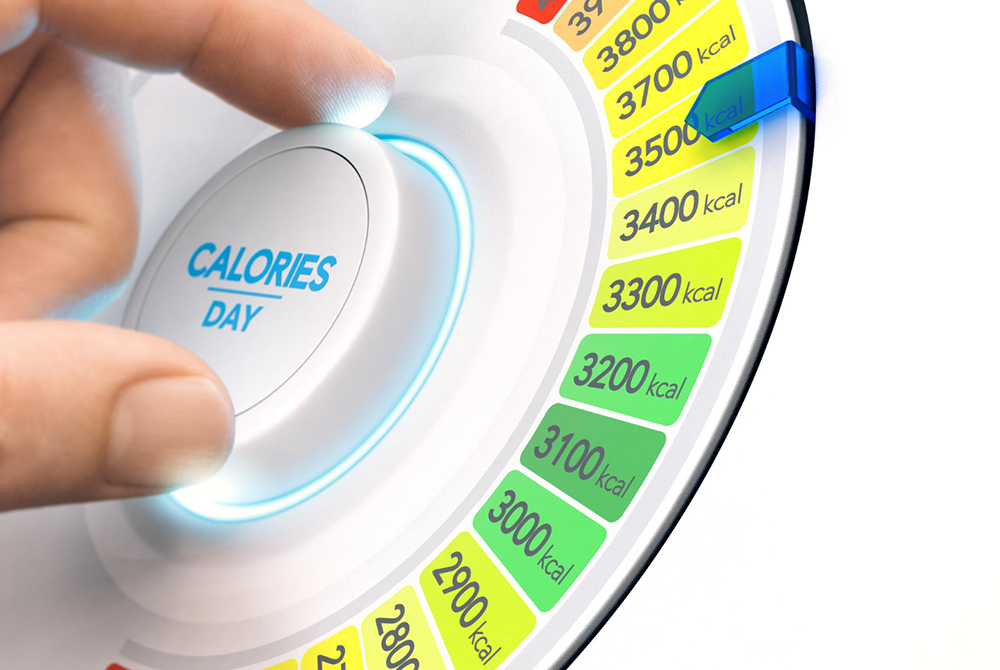How to gain weight - diet rules for weight gain and muscle mass

The weight gain diet is not a simple one at all. In addition, it must be combined with resistance training. It is not a matter of gaining weight. The trick is to ensure that the weight gain is mainly due to an increase in muscle mass and not fat. How to do this? How to gain weight healthily? Are diets for weight gain and diets for muscle mass the same diet plans? Learn about planning a diet for weight gain and discover what to eat to gain weight.
How to gain weight? Eat more and train
Although the question "how to gain weight?" is asked much less frequently in dietician offices than "how to lose weight?", the topic should not be underestimated. A weight gain diet is often a much more difficult programme than a weight-loss one, and the frustration level of people who want to gain weight is equal to that of those who are struggling to lose it. What should you do to gain weight? Firstly, eat more than your body's calorie requirements. Then, to put on weight healthily, increasing muscle mass and not just body fat, a calorie-restricted diet needs to be combined with appropriate exercise.
How to gain weight? Calculate your calorie demand
Traditional dietetics assumes that the body's calorie requirements are calculated from the formulas for basic metabolic rate (BMR) and total metabolic rate.. BMR describes the amount of energy the body uses to support vital functions, without any activity. Total metabolic rate describes the total energy expenditure of the body, taking into account BMR and all activities - walking, standing, household chores, sports, etc. These formulas can be helpful to determine the range of your caloric requirements. Nowadays, it is not necessary to calculate the results manually. Many calculators are available online that estimate basal and total metabolism from a few pieces of data.
You may find that the total metabolic rate from the calculation does not match your actual metabolic rate. Why? The human body is not a machine. Everyone is different, we do not expend energy in the same way. People who struggle to gain weight often burn more calories than the average body carrying out the same activities. In this case, what can you do to determine your calorie requirements? It takes some patience to find out how many calories to eat to gain weight.
- Weigh yourself for the first time. If you are menstruating, choose a time just after menstruation to weigh yourself.
- Weigh yourself at the same time for 7 consecutive days. Keep careful records of your results.
- During the same 7 days, make a note of EVERYTHING you eat using the app. Every nut, cube of chocolate, a bite of sandwich and sip of juice. Everything.
- Analyse the results. If your weight is lower after a week - you are eating less than you are burning. If it's the same (daily fluctuations of 100-200g indicate that your weight is stable, and the number of days with an increase is roughly equal to the number of days with a decrease) - you eat as much as your total metabolic rate. If your weight is higher on most days than on the day of the first weigh-in, you eat more than your total metabolic rate.
These measures will increase your awareness of your body's calorie requirements. Only by increasing your energy intake above the total metabolic rate, it is possible to gain weight systematically.
What should you do to gain weight? Work out with weights
Perhaps no one wants to gain weight only from body fat. To gain weight healthily, it is necessary to combine a calorie-restricted diet with resistance training that stimulates muscle development. The excess calories you will provide by eating more should be used by your body primarily to build muscle, not body fat. In order to do this, you need weight training. In the beginning, this can be bodyweight training. Later, as you adapt and increase your strength, you will need to use a gym or buy barbells and dumbbells on your own.
Recommended products
Planning a weight gain diet
Diet for weight gain should be planned by considering the realistic total metabolic rate and the number of strength training sessions. The number of calories consumed on training days is greater than on non-training ones. After all, you care about providing excess calories, not creating a calorie deficit through physical activity. The calorie content of your diet needs to be controlled - gradually increasing as you gain weight. The heavier the body is, made up of more muscle mass, the more energy it expends - basal metabolic rate and total metabolic rate then increase.
Key rules of the weight gain diet
- To gain weight, increase the calorie content of your diet by 15% compared to your total metabolic rate. For example, if your total metabolic rate is 2200 kcal, you should eat 2530 kcal (2200 + 0.15*2200).
- As you gain weight, modify the calorie content of your diet.
- Keep an eye on the weight gain and make sure it is no more than 0.5-1% per week. If you gain weight faster, there is a high risk of excessive fat gain.
- If you are gaining weight too quickly, add extra cardio or interval training, or reduce the calorie content of your diet.
- If you are not gaining weight, increase the calorie content of your diet to 20-25%.
- On training days, increase the calorie content of your diet by the amount of energy you expend on training.
What to eat to gain weight?
If your goal is to gain weight and therefore eat more calories than your body consumes, it doesn't mean you can eat whatever you want. After all, it's not about overeating sweets, gaining fat quickly and overloading your internal organs with visceral fat. So what should you eat to gain weight healthily?
A diet for weight gain should be based on healthy eating principles. A nutritious diet:
- is rich in vegetables,
- provides fruit,
- most carbohydrates are slow-digesting carbohydrates from groats, wholemeal bread, cereals (oats, rye) and pasta cooked al dente,
- contains fish eaten at least twice a week,
- provides high-quality fats such as olive oil, linseed oil, fats from nuts, avocados and sea fish,
- provides vegetable protein from pulses and animal protein from meat and dairy products,
- is varied, avoiding monotony and eating the same foods over and over again.
A healthy diet may of course include sweets or pizza from time to time. However, products commonly regarded as unhealthy mustn't dominate the menu. It is wrong to think that because it is a diet for weight gain, everything is allowed.
Recommended products for weight gain
To consume the right amount of energy with ease as you want to gain weight, it is a good idea to reach for healthy products that are also high in calories. These include:
- fatty marine fish, e.g. salmon, tuna, mackerel, herring,
- nuts, almonds, seeds,
- avocados,
- dried fruit,
- poultry with skin, especially fatty ones such as duck and goose,
- red meat, maximum 100 g per day,
- cheeses,
- cream.
When planning what to eat in order to gain weight, you may feel that there is too much food for one person. In such cases, products dedicated to physically active people - gainers and protein supplements - become very helpful. A gainer is a type of supplement that is no different in a formula from a protein powder but contains carbohydrates as well as protein, and often mainly carbohydrates with added protein. Both formulations help to provide calories when you find it hard to eat only regular foods to gain weight. It can be dissolved in milk or water and added to foods - oatmeal, omelettes, baked goods and smoothies.

Bulk diet
A bulk diet is a colloquial term for a diet focused on increasing muscle mass. It is one variation of a weight gain diet, but its main aim is not only to gain weight but to increase muscle mass. Among gym-goers, periods of mass diet are often followed alternately with periods of weight-loss diet to achieve the best possible body shape.
How much protein is in a diet for muscle mass?
On a bulk diet, as with other weight gain diets, you need to start by establishing the total metabolic rate and calorie value of your food. It is done in the same way as we described above. People who plan to change their diet typically to gain muscle mass place much more emphasis on the amount of protein in their meals. A weight gain diet should provide 2-2.5 g of protein per kg of body weight per day. It means that a person weighing 60 kg, dieting for mass, will consume 120-150 g of protein every day, according to the guidelines.
Considering what and how to eat for muscle mass, it is important to remember to distribute protein equally in your meals. Each meal should contain at least 15 g of protein.
Carbohydrates in a diet for mass
If you want to gain muscle mass, carbohydrates are as crucial as proteins. To ensure that muscle proteins do not break down during resistance training, muscles need to be saturated with glycogen which is ensured by a diet rich in carbohydrates. Carbohydrates should provide around 60% of the energy in the diet.
If muscle glycogen levels are high, the body obtains around 5% of energy from muscle proteins during training. When glycogen levels drop, up to 15% of energy can come from proteins. It means that training will not have the same effect on increasing muscle mass as it could with optimal carbohydrate intake.
A diet for muscle mass - pre-workout and post-workout mealy
Following a diet for mass should be combined with resistance training. The greater effectiveness of the diet and training for muscle gain is achieved by eating pre-workout and post-workout meals with the right composition of protein and carbohydrates.
The pre-workout meal for mass should be eaten about four hours beforehand and contain 2-2.5g of carbohydrates per kg of body weight as well as 15-30g of protein. It is crucial, to eat slow-digesting carbohydrates at that time, from which energy is released gradually.
The post-workout meal should also contain 15-30 g of protein combined with carbohydrates in a ratio of 1:4. This meal for mass is best eaten up to an hour after exercise to speed up muscle recovery and maximise muscle growth.
What to eat for mass?
When planning meals for muscle mass, the same guidelines should be followed as in other diets for weight gain. However, more attention is paid to the amount of protein in pre- and post-workout meals and the quantity of protein in the diet in general. While for a person who wants to gain weight, increasing muscle mass is a method of achieving the goal of gaining weight, for a person as a weight gainer, muscle growth is an objective in itself. Therefore, the protein content of meals and macronutrients in food becomes even more important, as it helps to achieve your body shape goals faster.
To be sure that the meals you eat for mass contain the right amounts of macronutrients, use apps that make meal planning a lot easier by counting the proteins, carbohydrates and fats in your meals. If you are inexperienced, use a nutritionist or personal trainer to teach you how to compose a menu yourself.
